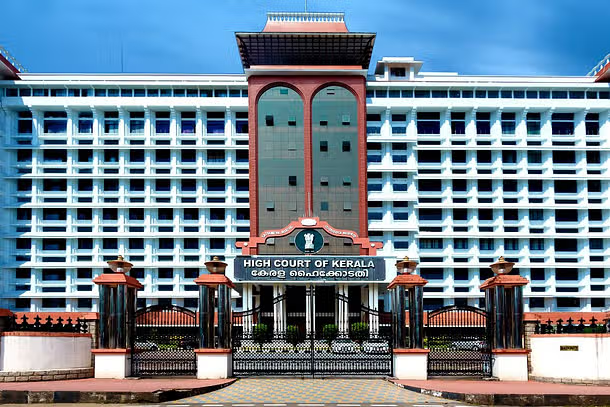


In a landmark judgment that reaffirms procedural discipline under GST law, the Kerala High Court quashed a duplicate assessment order under the Kerala State Goods and Services Tax Act, 2017 (KGST), stating that two conflicting orders on the same matter cannot legally coexist.
The judgment sheds light on how technical errors and lack of coordination within departments can lead to injustice to taxpayers, and how Section 161 of the GST Act can be used as a corrective mechanism.
The petitioner, Winter Wood Designers & Contractors India Pvt. Ltd., is a registered taxpayer under both the CGST Act, 2017 and the KGST Act, 2017.
Here's how the case unfolded:
A Show Cause Notice (SCN) was issued on 18.10.2021, pointing out alleged discrepancies in the company's GST returns for FY 2017–18.
The company submitted its reply in time.
The department accepted the reply, and the proceedings were dropped on 08.12.2023 under Sections 73 and 74 of the GST Act.
However, surprisingly:
Another officer from the same department issued a second SCN for the exact same discrepancies, resulting in a contradictory assessment order dated 30.12.2023, rejecting the taxpayer’s explanation and passing an adverse order.
This led to two mutually conflicting final orders for the same issue and same period — a legal anomaly.
To bring this to the authorities' notice:
The petitioner emailed the GST officer on 01.02.2024, highlighting the duplication and requesting rectification.
However, the request was rejected on 27.01.2025, citing that the rectification application was not filed via the GST portal within the six-month window under Section 161 of the Act.
The department acknowledged the mistake but refused to act on it due to a technical procedural lapse — non-filing through the portal.
Section 161 allows for rectification of errors apparent on the face of record, either:
On application by the taxpayer, OR
Suo motu (on its own motion) by the officer.
In this case, the officer was aware of the error (through the petitioner’s timely email), and thus had the power to act, regardless of whether the request was filed through the portal or not.
A single-judge bench of Justice Ziyad Rahman A.A. ruled in favor of the petitioner and made key observations:
Two conflicting orders cannot stand for the same matter — this is a legal contradiction.
The first order that accepted the petitioner’s explanation and dropped proceedings was valid and final.
The second order was invalid, being based on the same issue already decided.
Failure to act under Section 161 — especially when the error was pointed out within the time limit — was not legally justifiable.
The Kerala High Court quashed the second (conflicting) order and confirmed that the issue had been concluded properly via the first order dated 08.12.2023.
Q1. What does the Kerala HC judgment imply for taxpayers?
It reinforces that duplicate or conflicting GST orders are invalid and can be challenged legally.
Q2. Can GST authorities issue two SCNs on the same issue?
No. If one SCN is adjudicated, a second SCN on the same issue by another officer is procedurally incorrect.
Q3. What if I missed filing rectification via the GST portal?
If the error is apparent and reported within the 6-month window, and the officer is aware of it, they can act suo motu under Section 161.
Q4. Can an email be considered a valid rectification request?
Yes, as per this judgment, substantive communication like an email, within the time limit, is valid if it makes the officer aware of an error.
Q5. What can I do if I receive conflicting GST orders?
Immediately notify the department in writing/email and seek legal recourse by filing a writ petition if unresolved.
This judgment by the Kerala High Court serves as a crucial precedent in ensuring fair treatment of taxpayers under GST law. It also highlights the importance of administrative clarity and accountability within GST departments.
Taxpayers should not suffer due to internal miscommunication or procedural rigidity. Courts have made it clear that justice and legality must prevail over technical formalities, especially when errors are acknowledged and rectifiable.
For businesses and tax professionals, this case underscores the need to vigilantly track GST notices and challenge procedural lapses, even if they appear minor.
Have questions about tax filing or financial compliance? Share your thoughts, and let our experts guide you with accurate and reliable advice.
Try it Risk Free we Don’t Charge Cancellation Fees.


Post By : CA Madhur
Jun 24, 2025